Horses
The Benefits of Using Essential Oils for Your Horse’s Health and Wellness
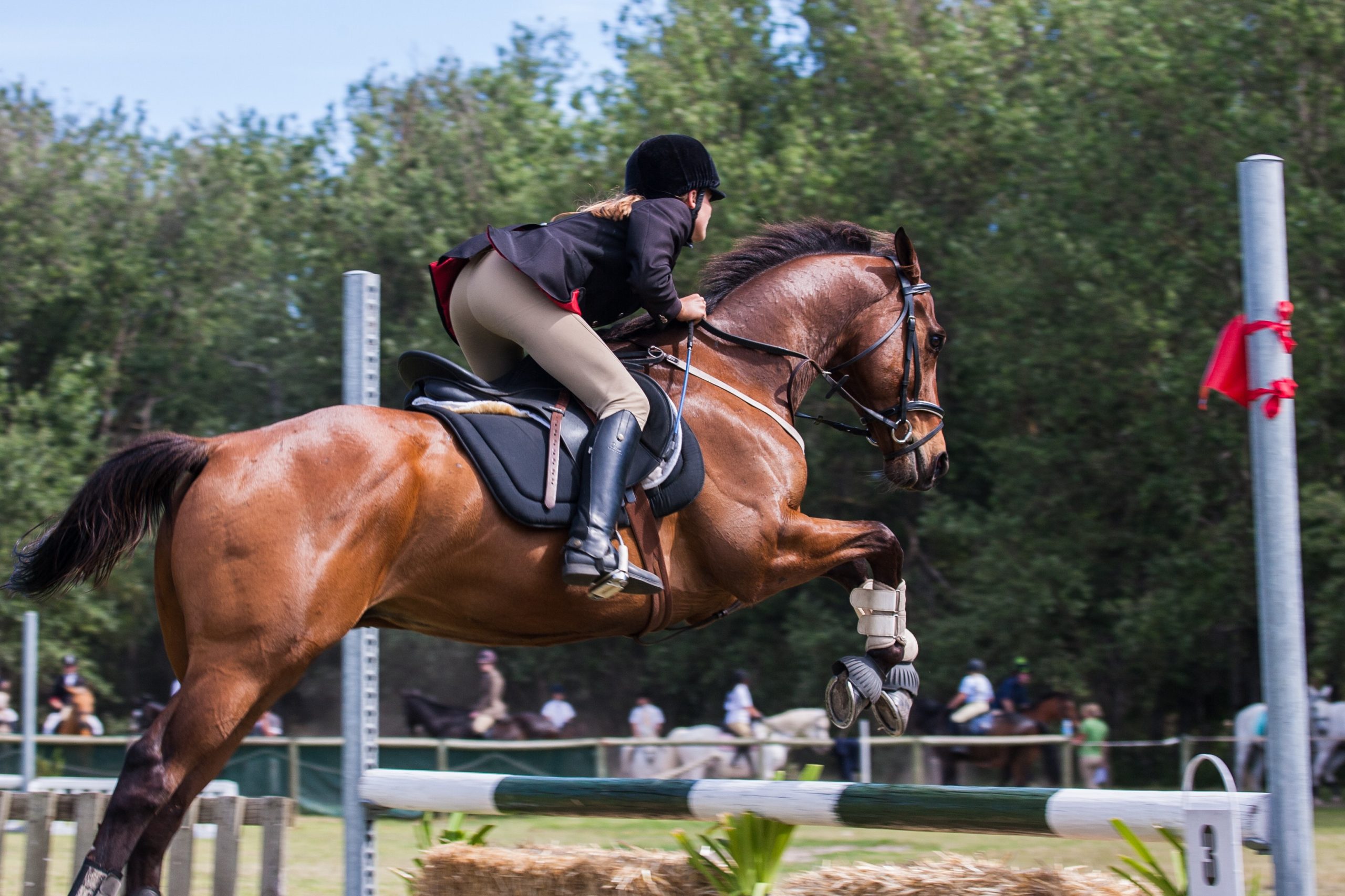
Horses can be prone to various health issues, ranging from skin irritation to joint inflammation. While traditional medication can be helpful, it often comes with side effects that can be harmful to your horse in the long run. This is where essential oils come in. Essential oils have been used for centuries to treat various ailments, and they can also be beneficial for your horse’s health and wellness. They are natural and safe and can be used for everything from stress relief to wound healing. In this post, we will explore the benefits of using essential oils for your horse’s health and wellness, how to use them safely, and which oils are best for specific issues. So, if you want to improve your horse’s health and well-being naturally and safely, keep reading!
- Introduction: What are essential oils?
Essential oils have been used for centuries to promote health and wellness in humans and animals alike. These oils are extracted from plants and contain concentrated natural compounds that have therapeutic properties. The use of essential oils for horses has become increasingly popular in recent years, as more horse owners are turning to natural remedies to support their horse’s health and well-being.
Essential oils can be used in a variety of ways for horses, including topical application, inhalation, and ingestion. When used properly, essential oils can help support a horse’s immune system, promote relaxation, ease muscle tension, and even improve hoof health. However, it’s important to note that not all essential oils are safe for use on horses, and some oils can be toxic if ingested or applied in the wrong way.
If you’re interested in using essential oils for your horse, it’s important to do your research and work with a qualified equine professional or holistic veterinarian who can guide you in choosing the right oils and using them safely and effectively. When used properly, essential oils can be a great addition to your horse’s wellness routine and can help to promote a natural, holistic approach to horse health care.
- How essential oils can benefit your horse’s health and wellness
Essential oils are one of the most natural ways to improve your horse’s health and wellness. These oils are extracted from plants and contain the natural essence of the plant’s fragrance, flavor, and healing properties. When used correctly, essential oils can provide numerous benefits to your horse, including physical and emotional wellness.
For physical wellness, essential oils can help alleviate many common ailments that horses face, such as joint pain, skin irritations, digestive issues, and respiratory problems. For example, lavender oil can help relieve stress and anxiety in horses, while peppermint oil can help soothe aching muscles and promote healthy digestion.
Essential oils can also help improve your horse’s emotional wellness. Horses are sensitive animals and can easily become anxious or stressed, especially during training or competition. Essential oils can help calm your horse’s nerves and provide a sense of relaxation and comfort. Oils such as chamomile and ylang-ylang are known for their calming properties and can be used in aromatherapy or massage to help your horse feel more at ease.
In addition to their physical and emotional benefits, essential oils are also a natural alternative to many conventional medications and treatments. They are non-toxic and free from harmful chemicals, making them a safe and effective way to support your horse’s overall health and wellness.
Overall, incorporating essential oils into your horse’s daily routine can provide a wide range of benefits for their health and well-being. Whether you’re looking to alleviate physical ailments, promote emotional balance, or simply provide a natural alternative to conventional treatments, essential oils are a great option to consider for your horse.
- How to safely and effectively use essential oils on your horse
Using essential oils can be a great way to support your horse’s health and wellness. However, it’s important to use them safely and effectively to ensure you don’t cause any harm. Here are some tips to help you use essential oils on your horse:
1. Dilute the essential oil: Essential oils are highly concentrated, so it’s important to dilute them before use. You can dilute them with carrier oil such as coconut oil, olive oil, or grapeseed oil. The ratio of essential oil to carrier oil will depend on the type of oil and the purpose of use.
2. Test for allergies: Before using any essential oil on your horse, it’s important to test for allergies. Apply a small amount of diluted essential oil to a small patch of skin and wait for 24 hours to see if there is any reaction.
3. Choose high-quality oils: Make sure to choose high-quality essential oils from a reputable source. Look for oils that are pure and free from additives.
4. Use the right amount: Using too much essential oil can be harmful to your horse. Always follow the recommended dosage and start with a small amount before increasing.
5. Avoid sensitive areas: Some essential oils can be irritating to sensitive areas such as the eyes, nose, and genitals. Avoid using essential oils near these areas.
By following these tips, you can safely and effectively use essential oils on your horse to support its health and wellness. As always, consult with a veterinarian before using any new product on your horse.
- 10 popular essential oils for horses and their benefits
Essential oils are a natural way to keep your horse healthy and happy. There are many different essential oils that you can use for your horse, each with its unique benefits. Here are ten popular essential oils for horses and how they can benefit your equine friend:
1. Lavender – known for its calming properties, lavender can help to reduce anxiety and stress in horses.
2. Peppermint – has a cooling effect that can help to soothe sore muscles and relieve tension.
3. Eucalyptus – has a refreshing scent and can help to clear respiratory issues in horses.
4. Lemon – can help to boost the immune system and has a refreshing scent that can help to improve mood.
5. Tea Tree – has antifungal and antibacterial properties and can help to relieve skin irritations.
6. Chamomile – known for its calming properties, chamomile can help to soothe nervous horses and promote relaxation.
7. Frankincense – has anti-inflammatory properties and can help to improve joint health in horses.
8. Rosemary – can help to improve circulation and boost the immune system.
9. Cedarwood – has a calming effect and can help to repel insects naturally.
10. Geranium – can help to balance hormones and has a floral scent that can help to improve mood.
When using essential oils for your horse, it’s important to dilute them properly and use them in moderation. Always consult with a veterinarian before using essential oils on your horse, especially if your horse has any underlying health conditions.
- Carrier oils for diluting essential oils for horses
Essential oils can be very potent and strong, and using them undiluted on horses can cause skin irritation or other adverse reactions. Carrier oils are used to dilute essential oils and make them safe for topical use on horses. Carrier oils are plant-based oils, and they have benefits for horse health and wellness.
Some popular carrier oils for horses include coconut oil, jojoba oil, almond oil, and olive oil. These oils are readily available, affordable, and easy to use. Coconut oil has natural antibacterial and antifungal properties, making it an excellent choice for skin conditions. Jojoba oil closely resembles the natural oils produced by horses’ skin, making it an excellent moisturizer. Almond oil is rich in vitamins A, B, and E, and it can help soothe dry, itchy skin. Olive oil is high in fatty acids, making it beneficial for maintaining healthy skin and coat.
When diluting essential oils with carrier oils, it’s essential to use the correct ratios. A good rule of thumb is to use one drop of essential oil per tablespoon of carrier oil. It’s also recommended to do a patch test on a small area of the horse’s skin before using any new essential oil or carrier oil. This will help you identify any allergic reactions or sensitivity to the oil.
Overall, carrier oils are an essential part of using essential oils for horses. They not only make the oils safe for topical use, but they also provide additional benefits for horse health and wellness. So, when using essential oils for your horse, be sure to choose a carrier oil that will work best for your horse’s specific needs.

- How to make your essential oil blends for horses
Making your essential oil blends for horses can be a fun and rewarding experience. Not only can you customize your blends to your horse’s specific needs, but you can also save money compared to buying premade blends. However, it’s important to note that essential oils are highly concentrated and should be used with caution. Always consult with a veterinarian or certified aromatherapist before using essential oils on your horse.
To make your essential oil blend, you’ll need a carrier oil such as coconut oil or almond oil and your chosen essential oils. Start by selecting oils that are beneficial for your horse’s specific needs. For example, if your horse is stressed or anxious, you may want to use lavender or chamomile. If your horse has a respiratory issue, you may use eucalyptus or peppermint.
Once you have your oils selected, mix them into your carrier oil. A general rule of thumb is to use 10-20 drops of essential oil per ounce of carrier oil. However, the exact ratio may vary depending on the oils you’re using and your horse’s individual needs. It’s always best to start with a lower concentration and gradually increase it if needed.
Before applying the blend to your horse, do a patch test on a small area of the skin to ensure there is no adverse reaction. If all is well, you can apply the blend to your horse’s neck, chest, or other areas as needed. Remember to store your essential oil blends in a cool, dark place away from direct sunlight.
By making your essential oil blends for your horse, you can promote their health and wellness in a natural, safe way. Just be sure to do your research and use oils with caution.
- Ways to incorporate essential oils into your horse’s routine
There are several ways to incorporate essential oils into your horse’s routine to improve their health and wellness. One of the easiest ways is to add a few drops of essential oil to a carrier oil such as coconut oil or olive oil and massage it into your horse’s coat. This can help with circulation, relaxation, and even repelling insects.
Another way to use essential oils is through diffusion. A diffuser can be set up in your horse’s stall or the barn area to help with respiratory issues or to create a calming environment. Some essential oils that are great for diffusing include lavender, eucalyptus, and peppermint.
If your horse is experiencing joint pain or stiffness, essential oils can be added to a warm compress and applied to the affected area. Some oils that are beneficial for this include frankincense, ginger, and turmeric.
You can also add essential oils to your horse’s shampoo, conditioner, or grooming spray to promote healthy skin and coat. Tea tree oil is a great addition to grooming products as it has antifungal and antibacterial properties.
It’s important to remember that essential oils should always be diluted before use on horses and to consult with a veterinarian or equine aromatherapist before incorporating them into your horse’s routine. With proper use, essential oils can provide numerous benefits to your horse’s health and well-being.
- Essential oils for emotional health and stress relief in horses
Essential oils are not only great for physical health but also emotional health and stress relief in horses. Horses are known to be sensitive creatures and can quickly pick up on stress and anxiety in their environment. Essential oils can help calm and relax horses, which can make them more manageable and easier to work with.
Lavender and chamomile essential oils are great for calming horses and reducing anxiety. These oils can be used in a diffuser in the stable or added to a spray bottle with water to mist over your horse’s coat. Another great oil for reducing stress and promoting relaxation is bergamot oil. It has a calming effect on the nervous system and can help horses who are nervous or anxious around other horses or during transport.
Essential oils can also be used to help horses who are struggling with emotional issues such as depression, grief, or trauma. Frankincense and rose essential oils are great for promoting emotional healing and can help horses who have experienced trauma or are grieving the loss of a companion.
It’s important to note that not all essential oils are safe for use on horses, and some oils may be toxic if ingested or applied directly to the skin. Always do your research and consult with a veterinarian or equine aromatherapist before using essential oils on your horse. When used safely and correctly, essential oils can be a valuable tool in promoting emotional health and stress relief in horses.
- Precautions to take when using essential oils on horses
Essential oils can provide numerous benefits for your horse’s health and wellness, but it’s important to take precautions when using them. Here are a few things to keep in mind:
1. Dilute properly: Essential oils are potent and can cause skin irritation or even chemical burns if applied directly to the skin. Always dilute essential oils with a carrier oil before applying them topically to your horse.
2. Avoid sensitive areas: Essential oils should never be applied near your horse’s eyes, nose, or mouth. Additionally, avoid sensitive areas such as the genitals or anus.
3. Use caution with pregnant mares: Some essential oils can have an abortifacient effect on pregnant mares. Always consult with a veterinarian before using essential oils on a pregnant mare.
4. Start slowly: Just like with humans, some horses may have an allergic reaction to certain essential oils. Start with a small amount and observe your horse’s behavior and reactions before continuing use.
5. Use high-quality oils: When using essential oils on your horse, make sure to use high-quality oils that are pure and free from additives or synthetic ingredients.
By taking these precautions, you can safely and effectively use essential oils to improve your horse’s health and wellness. As with any new treatment, always consult with a veterinarian before using essential oils on your horse.
- Conclusion
In conclusion, using essential oils for your horse’s health and wellness can provide numerous benefits. Essential oils have been used for centuries for their therapeutic properties and can be a great addition to your horse’s health regimen.
Essential oils can help alleviate stress and anxiety, improve digestion, boost the immune system, and promote healing. They can also be used to repel insects and pests, which can help protect your horse from potentially harmful bites.
It’s important to note that essential oils should always be used safely and correctly. Dilution ratios and methods of use can vary depending on the oil and the intended use. Before using essential oils on your horse, it’s important to consult with a veterinarian or a qualified equine aromatherapist to ensure that you are using them safely and effectively.
Overall, essential oils can be a great natural alternative to traditional medications and treatments for your horse’s health and wellness. With proper use and care, they can help your horse feel their best and maintain optimal health.
We hope this article has been informative and helpful in understanding the benefits of using essential oils for your horse’s health and wellness. By using essential oils, you can provide your horse with a natural way to support its physical and emotional well-being. Essential oils can help with everything from reducing anxiety to supporting the immune system. Remember to always consult with your veterinarian before using essential oils on your horse and to use high-quality products. May your horse continue to thrive with the help of essential oils.
Read Also :
The Ultimate Guide to Choosing the Best Oil to Help Your Horse Gain Weight
0 Comments
Leave a Reply
Cancel reply
Horses
How to Estimate Monthly Horse Training Costs on Your Own
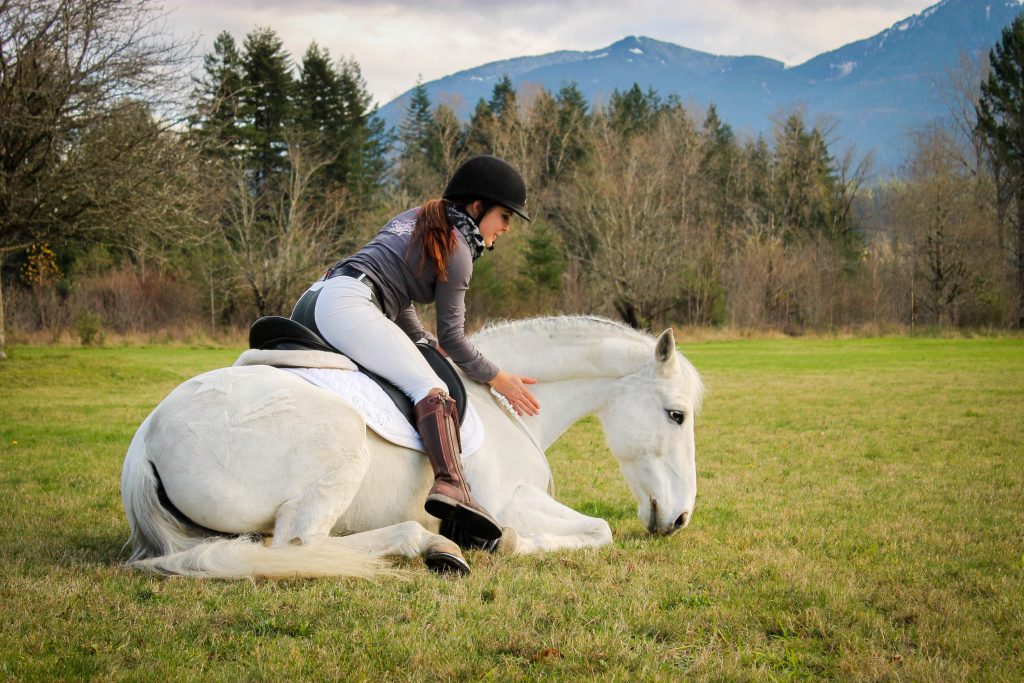
When you are considering horse training for your beloved steed, one of the most important aspects to consider is the cost. Whether working with a professional horse trainer or teaching your horse yourself, estimating the monthly costs associated with horse training is important. This blog post will help you to better understand how to accurately estimate the monthly costs of horse training so you can make an informed decision about the best option for you and your horse.
Horses
Beginner’s Guide to Understanding Common Horse Terms
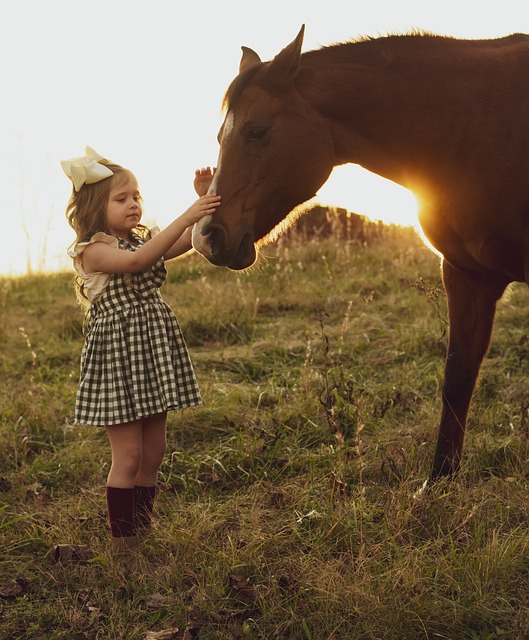
Are you new to the world of horses and feeling overwhelmed by the seemingly endless list of horse terms? Don’t worry! This beginner’s guide will help you understand the most common horse terms so you can start conversing with experienced horse owners with confidence. From body parts to colors to gaits, this guide will explain the basics of horse terms so you can better understand this amazing animal.
Mare: a female horse over the age of four
When it comes to horse terminology, one of the first words you should know is “mare.” A mare is a female horse that is at least four years old. Mares are commonly used for riding, racing, and breeding. They are known for their gentle and nurturing nature, making them a popular choice for those who are new to horse riding or training.
Mares go through a natural reproductive cycle, which is why they are commonly used for breeding purposes. They are angry foals for approximately 11 months, after which they give birth to a beautiful baby horse. Many mares are also used for horse shows, as they are elegant and graceful in the arena.
It’s important to note that not all mares are suitable for riding or breeding. Some mares can be quite temperamental and may require a skilled and experienced trainer to handle them. In general, however, mares are gentle and loving animals that can form a strong bond with their owners and riders.
If you are looking to get involved in horse riding or horse breeding, understanding the term “mare” is essential. Knowing the different terms associated with horses can help you communicate more effectively with other horse enthusiasts and experts in the field.
Colt: a male horse under the age of four
If you’re new to the world of horses, the term “colt” might be confusing. But don’t worry, we’re here to clear it up for you. A colt is simply a male horse under the age of four. Once a male horse reaches the age of four, he is then referred to as a stallion if he’s used for breeding, or a gelding if he’s been castrated.
Colts are usually born in the spring or summer and are weaned from their mothers between four and six months of age. At this point, they’ll be separated from their dams and placed in a pasture with other young horses. They’ll spend the next few years growing and learning, and will eventually be trained for riding or driving.
It’s important to note that while colts may be playful and curious, they can also be dangerous if they’re not handled correctly. If you’re new to horses, it’s best to leave handling young colts to experienced professionals. In addition, it’s important to keep colts separated from mares unless they’re being bred intentionally. Male horses can be aggressive and territorial, especially around mares, so it’s important to exercise caution.
Now that you understand what a colt is, you can impress your horsey friends with your knowledge. And who knows, maybe someday you’ll even own a colt of your own!
Stallion: a male horse used for breeding
Stallions are male horses that are kept for breeding purposes. They are highly prized in the horse world for their ability to produce offspring with desirable traits such as speed, strength, and agility. However, owning and breeding a stallion requires a lot of knowledge and experience, as these horses can be quite difficult to handle.
Stallions are known for their aggressive behavior, which can be a result of their instincts to protect their mares and offspring. They may also exhibit territorial behavior, which can be dangerous for both humans and other horses. As such, it is important to always exercise caution when handling a stallion and to seek the advice of experienced trainers and handlers when working with them.
In addition to their behavior, stallions are also recognized by their physical characteristics. They tend to have a more muscular build than mares or geldings and may have a thicker neck and stronger jaw. They may also have a more prominent mane and tail, which is often styled for show.
Breeding a stallion requires careful consideration, as the stallion’s genetic traits will be passed down to its offspring. As such, it is important to choose a stallion with desirable traits, such as good conformation, soundness, and a proven record of producing successful offspring. This is typically done through research, and by seeking the advice of veterinarians and other horse professionals.
Overall, stallions are a valuable asset in the horse world but require a lot of knowledge and experience to handle properly. If you are considering owning or breeding a stallion, it is important to do your research and seek the advice of experienced professionals to ensure that you make informed decisions and provide the best possible care for your horse.
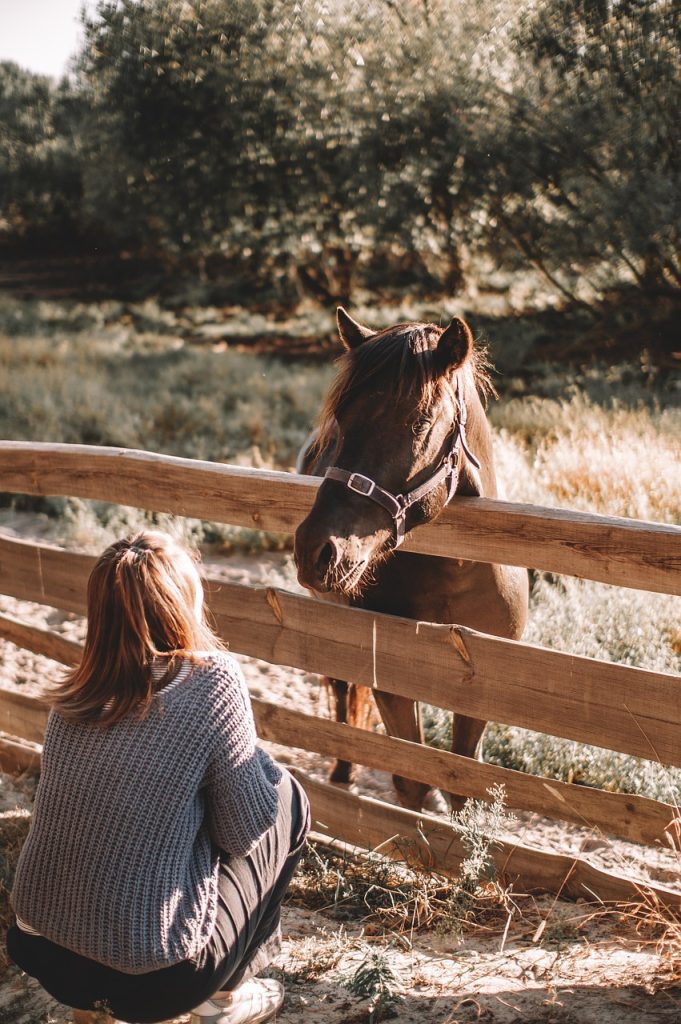
Gelding: a castrated male horse
A gelding is a male horse that has been castrated. This means that their testicles have been removed, making them incapable of breeding. Geldings are popular in the horse world for a variety of reasons, including their even temperaments and trainability.
Geldings tend to have more consistent and predictable behavior than stallions, as they don’t experience the hormonal surges that can cause stallions to become aggressive or unpredictable. They also tend to be easier to train and handle than stallions, which is why many riders and trainers prefer working with them.
Geldings come in all shapes and sizes, just like any other horse. They can be used for a wide range of activities, from trail riding to show jumping. Because they tend to be easier to manage than stallions, many riding schools and equestrian centers will use geldings for lessons and other activities.
While gelding a horse may seem extreme, it’s a relatively common procedure that is often done for the safety and well-being of the horse and those around them. It can also help reduce unwanted behavior in male horses, making them more suitable for certain activities and environments.
Overall, geldings are an important part of the horse world, and understanding what they are and what they can do is an important part of being a horse owner or rider.
Filly: a female horse under the age of four
When it comes to horses, it’s important to understand the different terms used to describe them, especially if you’re new to the equine world. One such term is “filly,” which refers to a female horse that is under the age of four.
Filly’s are young female horses that are full of energy and curiosity. They’re usually very playful and love to run and play. They have yet to reach maturity, and they’re still developing both physically and mentally. At this age, they require plenty of attention and care to help them grow up to be healthy and happy horses.
Filly’s are often trained and worked with from a young age. It’s important to start their training slowly and carefully, focusing on building trust and a good foundation for their future development. As they grow and mature, they can be trained for a variety of disciplines, from racing to dressage and more.
One thing to keep in mind when working with filly’s is that they can be a bit temperamental at times. This is natural for young horses, but it’s important to be patient and consistent in your training to help them become well-behaved and obedient horses.
Overall, filly’s are an exciting part of the equine world. Whether you’re looking to train them for a specific discipline or simply enjoy their playful nature, these young female horses are sure to capture your heart. So if you’re just getting started with horses, familiarize yourself with the term “filly” and prepare for an exciting journey!
Foal: a baby horse of either gender
One of the most adorable and endearing sights in the world of horses is a foal, a baby horse. Whether you’re an experienced horse enthusiast or just beginning to learn about these magnificent creatures, it’s important to understand what a foal is and how it fits into the equine world.
A foal refers to a horse that is still in its infancy, typically under the age of one year old. This term can be applied to both male and female horses. Foals are the product of the breeding process and are born after a gestation period of around 11 months. Watching a foal take its first steps and interact with its mother is truly a heartwarming experience.
As foals grow, they go through various stages of development. In the first few days of their lives, they rely entirely on their mother’s milk for nutrition. Foals must receive adequate colostrum, the first milk produced by the mare, which contains essential antibodies for their immune system.
As they grow older, foals start to eat solid food alongside their mother’s milk. This transition period, usually around two to four months old, is known as weaning. It’s a significant milestone for both the foal and the mare as they adjust to a new routine and the foal becomes more independent.
Foals have a playful and curious nature, spending much of their time frolicking in pastures, exploring their surroundings, and engaging in social interactions with other foals. These activities are crucial for their physical and mental development, as they learn important skills and establish social hierarchies.
During this period, foals need to receive proper care and attention from their owners or caretakers. Regular veterinary check-ups, deworming, and vaccinations are necessary to ensure their health and well-being. Additionally, providing a safe and secure environment, along with appropriate nutrition, is essential for their growth and development.
As foals approach their first birthday, they lose their « baby » appearance and resemble adult horses more closely. This transition, known as the yearling stage, marks the end of their foalhood and the beginning of their journey into adulthood.
Pony: a small horse
Ponies are smaller breeds of horses, typically measuring 14.2 hands (58 inches) or less at the withers (the highest point of the horse’s back). They are often mistaken for young horses, but they are fully mature adults.
Ponies are known for their strength, agility, and surefootedness, making them well-suited for various activities, such as driving, riding, and pulling. They are also popular for children and smaller riders due to their smaller size.
There are various types of ponies, each with unique characteristics and uses. Some popular pony breeds include Shetland, Welsh, and Connemara.
Despite their size, ponies require the same amount of care and attention as their larger equine counterparts. This includes regular exercise, feeding, grooming, and veterinary care. It’s important to research the specific needs of your pony breed to ensure they stay healthy and happy.
Read Also :
Feeding and Breeding Horses: The Do’s and Don’ts
10 Important Considerations You Must Know Before Owning a Horse!
Horses
The Moral Conundrum of Eating Horses!
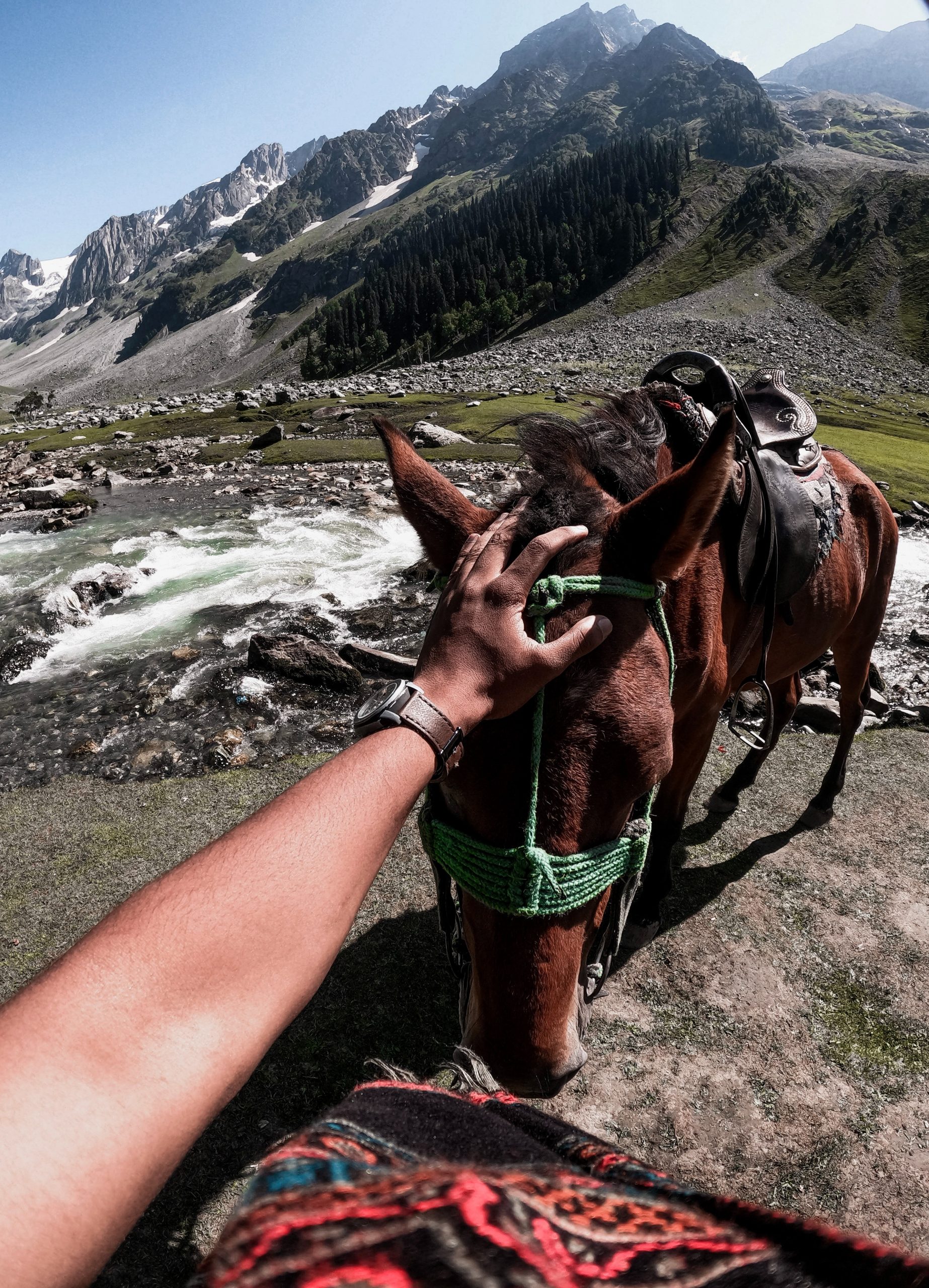
Horses are currently banned from human consumption in the United States, but this hasn’t always been the case. Before being made illegal in 2006, up to 100,000 horses were slaughtered every year in the US alone. This prompted an ethical debate regarding whether horses should be allowed as food or not, and many believed that horses should not be consumed by humans due to their intelligence and capacity to experience fear and pain. However, other arguments have been made that dispute this idea and say that horses can just as well be killed for human consumption as cows or chickens are. So what do you think about eating horses?
Is eating horses, right?
There’s been a long-standing debate about whether or not horses should be eaten. Horse meat is still eaten in other countries such as France, Belgium, and Italy. But for whatever reason, horse consumption has never really caught on in North America. The idea of eating horses is often met with disgust and fear. After all, many people treat their horses like family members.
But what if the only alternative to eating a horse was starving? If it would take more food to keep the animal alive than it would feed an average human being – then it might make sense to eat the horse. In this case, you might consider it justifiable to kill and eat a horse to avoid starvation. But what if there wasn’t an alternative?
What are the arguments in favor of horse consumption?
Horses are domesticated animals and as such, they have adapted to living in our world. They have grown accustomed to humans and the ways that we live. The people who care for them have likely become their friends, feed them treats, and give them affection. If a horse is treated well throughout its life, then it seems logical that it would not mind being killed to provide us with food.
If a horse is treated well throughout its life, then it seems logical that it would not mind being killed to provide us with food. There’s also the argument that because horses evolved alongside humans, their meat could be the most natural option for human consumption out there.
What are the arguments against horse consumption?
Some would argue that eating horses is morally wrong because it is unnecessary. The horse population in the U.S. has been dwindling for years and most horse owners are reporting a surplus of horses, so why take away what little food they have? Furthermore, there is no reason to eat horses when we produce enough beef and chicken to feed the entire country, not to mention the billions of other animal sources around the world that could be used as food. Horse meat also poses an increased risk of developing certain diseases such as Mad Cow Disease or Encephalitis.
Some would argue that eating horses is morally wrong because it disrespects their role in society as companion animals.
Conclusion
Today, horse consumption is a controversial topic. Those in favor argue that horses are a renewable resource and they have not been overpopulated like other animals like cows or pigs. However, opponents argue that eating horses is immoral and creates an unsustainable population of hungry humans and hungry horses. We may never come to a consensus on the ethics of eating horses, but one thing is for sure: you should at least know what you’re getting into before deciding on something as serious as this.
Read Also :
Feeding and Breeding Horses: The Do’s and Don’ts
10 Important Considerations You Must Know Before Owning a Horse!
Trending

 Cats1 year ago
Cats1 year agoDon’t Feed Your Cat These 8 Foods!

 Cats8 months ago
Cats8 months agoWhy Do Cats Spray and How Can You Stop Them? Insights into Urine Spraying in Male Cats

 Dogs2 years ago
Dogs2 years agoSo You’re Thinking About Getting a Poodle

 Birds1 year ago
Birds1 year agoThe Perfect Blend for Your Birds: Birds and Blend

 Cats8 months ago
Cats8 months agoThe Ins and Outs of Cat Sterilization: Removing the Female’s Ovaries

 Cats8 months ago
Cats8 months agoPre-Vaccination Prep: Getting Your Cat Ready

 Horses1 year ago
Horses1 year agoDon’t Go Horse Shopping Without Checking This Dressage Horse Shopping Checklist First!

 Dogs8 months ago
Dogs8 months agoWhat to Do With Your Dog’s Body After Death: A Guide for Pet Owners


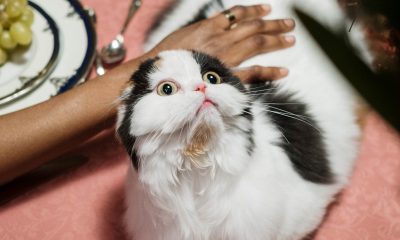

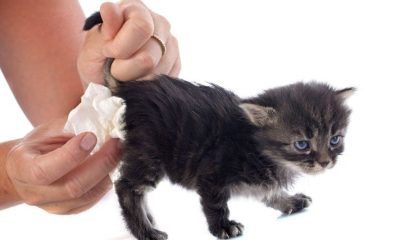



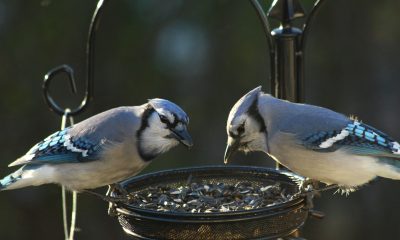

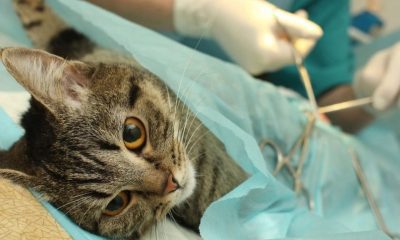

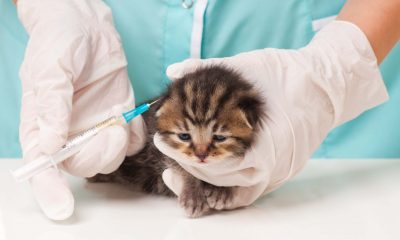





Pingback: The Ultimate Guide to Choosing the Best Oil to Help Your Horse Gain Weight